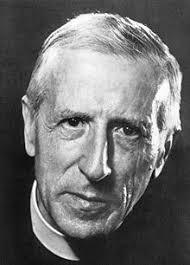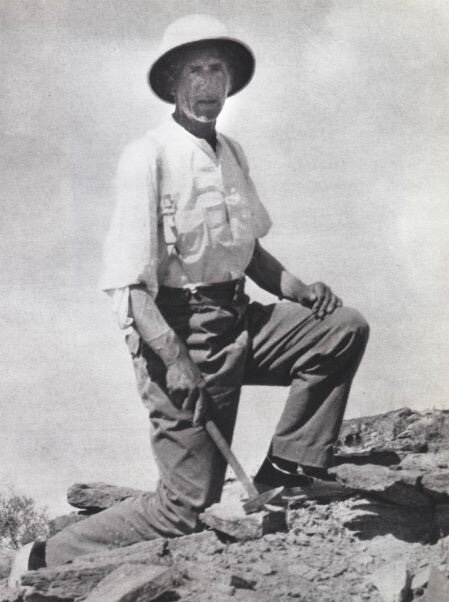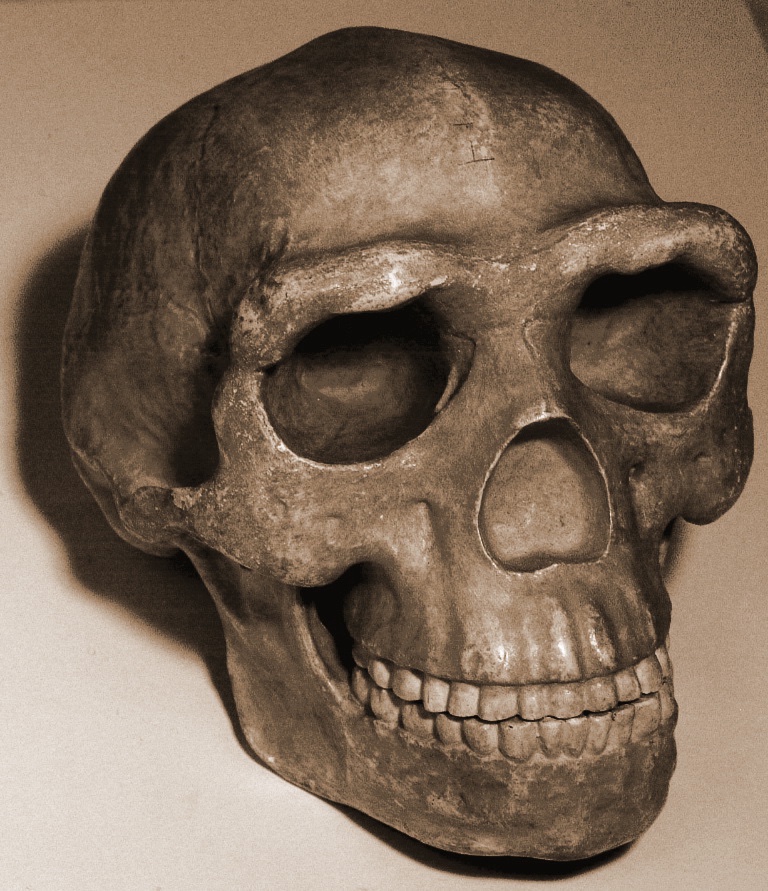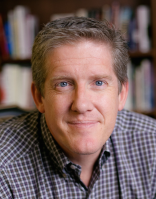My dad was a fan of Teilhard de Chardin 1881-1955), the French Jesuit scientist, philosopher, and theologian. Teilhard was ordained a priest in 1911, taking a bow to teach and uphold the inerrant teaching of the Roman Catholic Church.

Studying at the University of Paris, he went on to lecture in geology at the Catholic University in Paris. In time he was called up to serve in World War I. In the midst of death, he began to write Cosmic Life. Then he kept writing and writing, believing he might not survive the war.
After the war, his interest in paleontology led him to study dinosaurs and then specialize in the mammals of the Tertiary period. He spent 20 years doing geological research in China, where fossils can be clearly seen on the sides of hills. They uncover stone tools, proving that prehistoric humans lived in China. He was fascinated by ancient cave art in the Pyrenees.

Fossil evidence led him to write about evolution (which he called cosmogensis), publishing his many papers in scientific journals. Evolution is creation, the process of continuing creation, he believed. Creation is not fixed or static. Creation is an ongoing process. In 1937, he wrote Le Phénomène spirituel (The Phenomenon of the Spirit).
His work and his writing eventually brought him in conflict with church teaching. He was challenged that if evolution was correct, there was no Adam and Eve. He marveled that the Bible was being read so literally. In a memoir he said the church needed to rethink original sin in light of modern science. Someone sent the memoir to Rome. He was called by his Jesuit superiors to recant and sign a document asserting that original sin is inherited, faith is superior to reason, dogma cannot be changed, and all humans sin originated from a human being named Adam. He agonized. Some encouraged him to sign. Others felt faith and science could not be reconciled. He should leave the order and the priesthood so he can practice science freely. He yearned to show that faith and reason could coexist. Teilhard was removed from his teaching post. In 1939, Rome banned his work L’Énergie Humaine.

He was warned not to question the church’s teaching. In terms of physics, he had always been taught that spirit and matter were separate. In his work he came to see spirit as energy, not separate from the universe. Spirit and matter were not separate, but two aspects of the same cosmic stuff. He did not believe the only way to find God was to reject the world.
We are not human beings having a spiritual experience. We are spiritual beings having a human experience.
In China, he participated in the discovery of Peking Man.

In 1962, several of his writings were condemned by The Roman Catholic Church.
Teilhard died on Easter Sunday, April 10, 1955 in Mew York City.
Someday, after mastering the winds, the waves, the tides and gravity, we shall harness for God the energies of love, and then, for a second time in the history of the world, man will have discovered fire.
You can learn more by watching Teilhard: Visionary Scientist on the free PBS app.
Since once again, Lord – though this time not in the forests of the Aisne but in the steppes of Asia – I have neither bread, nor wine, nor altar, I will raise myself beyond these symbols, up to the pure majesty of the Real itself; I, your priest, will make the whole earth my altar and on it will offer you all the labours and sufferings of the world.
Over there, on the horizon, the sun has just touched with light the outermost fringe of the eastern sky. Once again, beneath this moving sheet of fire, the living surface of the earth wakes and trembles, and once again begins its fearful travail. I will place on my paten, O God, the harvest to be won by this renewal of labour. Into my chalice I shall pour all the sap which is to be pressed out this day from the earth’s fruits.
My paten and my chalice are the depths of a soul laid widely open to all the forces which in a moment will rise up from every corner of the earth and converge upon the Spirit. Grant me the remembrance and the mystic presence of all those whom the light is now awakening to the new day . . .
Over every living thing which is to spring up, to grow, to flower, to ripen during this day say again the words: ‘This is my Body’. And over every death-force which waits in readiness to corrode, to wither, to cut down, speak again your commanding words which express the supreme mystery of faith: ‘This is my Blood’.
Pierre Teilhard de Chardin, The Divine Milieu
